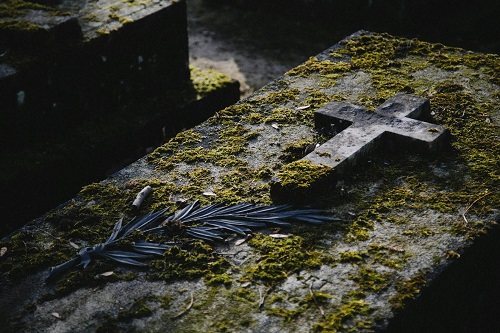Photo by Kenny Orr on Unsplash
Picture this. A person passes away unexpectedly and their family is left wondering what happens to the house, the savings and even sentimental things like jewellery or family photos. Everyone has their own opinion on what should be done, but there is no will to guide them. In this situation, the law steps in and makes the decisions.
This is what’s known as dying “intestate.” It happens more often than people think, and it can cause stress, confusion and disputes at a time when families are already grieving.
Who decides where everything goes?
If there is no valid will, state or territory laws decide how your assets are divided. These rules follow a set formula that looks at who your closest relatives are.
- If you have a partner but no kids, your partner usually gets everything.
- If you have a partner and kids, the estate is divided between them.
- If there are no partners or kids, the estate goes to parents, siblings and other relatives in order.
- If no relatives can be found, the estate may even pass to the government.
These rules are designed to be fair, but they don’t consider personal wishes or unique family situations.
Does my partner automatically get everything?
Not always. Many people assume their spouse or de facto partner will inherit everything if they die without a will, but the truth is more complicated.
This is why many families turn to experts in wills and estate law to get advice and avoid disputes later on.
What about stepchildren or unmarried partners?
Photo by Priscilla Du Preez on Unsplash
Another common surprise is that intestacy laws do not always recognise stepchildren, unless they were legally adopted. That means a child you helped raise may not be entitled to anything if you don’t have a will.
Unmarried partners may also run into challenges proving they were in a de facto relationship. Without clear evidence, they could miss out entirely.
What happens to my super without a will?
Superannuation does not automatically form part of your estate. Instead, the trustee of your super fund decides who receives your balance and any life insurance tied to it. You can nominate beneficiaries, but if you have not done that, the trustee has the power to choose.
This can come as a shock to families who assume super will be divided the same way as other assets. A will combined with proper super nominations gives you more certainty.
Why can intestacy cause problems for families?
When there is no will, the legal process takes longer and can cost more. Families may need to apply to the court to administer the estate, which adds paperwork and delays.
On top of that, disputes are more likely. Siblings might argue about what is fair. Partners from different relationships may disagree about who should receive what. These arguments can drag on, damage relationships and even reduce the value of the estate through legal fees.
Common myths about wills
Plenty of Australians put off writing a will because they believe myths like these:
- “I don’t own much, so I don’t need one.” Even a small estate can cause arguments.
- “Everything goes to my partner anyway.” Not always, especially in blended families.
- “I’m too young to think about that.” Sadly, accidents and illness don’t just happen later in life.
- “A DIY will kit is fine.” It might be, but unclear wording or mistakes can make it invalid.
So, why bother making a will?
Photo by Scott Graham on Unsplash
A will is about more than money. It lets you:
- Choose who looks after your children if something happens to you.
- Decide who receives specific items with sentimental value.
- Make sure your assets are divided the way you want.
- Reduce stress for your family during an already tough time.
Most importantly, it gives your loved ones clarity and peace of mind.
How often should I update my will?
Life changes quickly, and your will should keep up. It is a good idea to review it whenever big changes happen, such as:
- Getting married or divorced.
- Having children or grandchildren.
- Buying or selling property.
- Starting or closing a business.
- When someone named in your will passes away.
Even if none of these events happen, checking your will every few years is a smart move.
What is the takeaway?
Dying without a will means leaving important decisions to the law instead of making them yourself. Intestacy rules may be clear, but they rarely reflect what people would have truly wanted for their families.
The simple act of making a will can save your loved ones a lot of stress, expense and conflict. It doesn’t need to be complicated, but it does need to be done properly.
If you have been putting it off, now is the time to take that step and make sure your family is protected.





































